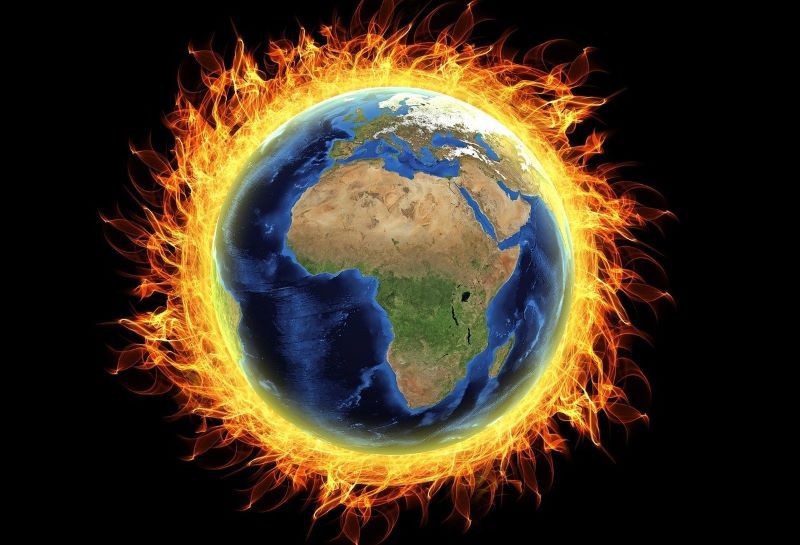
Sunday, July 21 was the hottest day ever recorded, according to preliminary data from the European Union's Copernicus Climate Change Service, which has tracked such global weather patterns since 1940.
The global average surface air temperature on Sunday reached 17.09 degrees Celsius (62.76 degrees Fahrenheit) — slightly higher than the previous record set last July of 17.08 C (62.74 F) — as heatwaves scorched large swathes of the United States, Europe and Russia.
Carlo Buontempo, director of the Copernicus service, said that it was possible the beginning of this week could eclipse Sunday's record as heatwaves continue to sizzle across the world.
"When you have these peaks, they tend to cluster together," he said.
Last year, saw four days in a row break the record, from July 3 through July 6, as climate change, driven by the burning of fossil fuels, drove extreme heat across the Northern Hemisphere.
While Sunday's record was only marginally higher than last year's reading, "What is remarkable is how different the temperature of the last 13 months is with respect to the previous records," said Buontempo.
Every month since June 2023 has now ranked as the planet's hottest since records began, compared with the corresponding month in previous years.
Some scientists have suggested 2024 could surpass 2023 as the hottest year since records began, as climate change and the El Nino natural weather phenomenon — which ended in April — have pushed temperatures ever higher this year.
"As a consequence of the increasing greenhouse gases in the atmosphere — we are bound to see new records being broken in the next few months, in the next few years," Buontempo said.
Scientists and environmental advocates have long called for global leaders and wealthier countries to phase out and end the reliance on fossil fuels to prevent catastrophic effects of climate change, including increased heatwaves.



1730959638-0/trump-(19)1730959638-0-165x106.webp)

















COMMENTS
Comments are moderated and generally will be posted if they are on-topic and not abusive.
For more information, please see our Comments FAQ